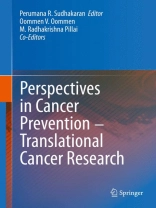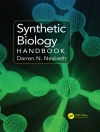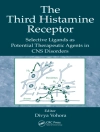Being a complex disease that affects millions of people world over, cancer research has assumed great significance. Translational cancer research transforms scientific discoveries in the laboratory or population studies into clinical application to reduce incidence of cancer , morbidity and mortality. It is becoming increasingly evident that cancer is a preventable disease. The IVth International Symposium on Translational Cancer Research held in Udaipur, India in December 2011, discussed various aspects of the biological processes in cancer cells and approaches to cancer prevention. A few contributions from this meeting are presented in this book, providing an in depth analysis of data on cancer prevention and therapeutics. These contributions are either critical reviews or research reports. The topics discussed include evidence-based nutritional recommendations for cancer patients and survivors, risk factors such as stress, enrichment of tumour stem cells by anticancer drug treatment contributing to tumour recurrence and the mechanism of anticancer effects of various natural products. Chemosensitizing effect of curcumin, anti-cancer effect of products from neem, action of sulforaphane and cytotoxic effect of a number of novel synthetic coordination complexes of trace metals have been discussed. Novel molecular targets of angiogenesis and molecular basis of the gender bias to thyroid cancer have also been discussed . This book provides useful information on translational cancer research to clinicians and biomedical scientists.
表中的内容
1.Nutrition in Cancer: Evidence Based Nutrition Recommendations in Cancer Patients and Survivors.- 2.Tumor Stem Cell Enrichment by Anticancer Drugs: A Potential Mechanism of Tumor Recurrence.- 3. Curcumin: A potent candidate to be evaluated as a chemosensitizer in paclitaxel chemotherapy against cervical cancer.- 4. Azadirachta indica (Neem) and Neem Limonoids as Anticancer Agents: Molecular Mechanisms and Targets.- 5. In vitro studies on the antioxidant/antigenotoxic potential of aqueous fraction from Anthocephalus cadamba bark.- 6. Possible involvement of Signal Transducer and Activator of Transcription-3 (STAT3) Signaling Pathway in the Initiation and Progression of Hepatocellular Carcinoma.- 7. Simple Sequence Repeats In 5’ and 3’ flanking sequences of Cell Cycle Genes.- 8.Mechanisms of Chemopreventive Activity of Sulforaphane.- 9. Reciprocal relationship between VE-cadherin and Matrixmetalloproteinase expression in Endothelial cells and its Implications to Angiogenesis.- 10. Androgen receptor expression in human thyroid cancer tissues: a potential mechanism underlying the gender bias in the incidence of thyroid cancers.- 11.Novel co-ordination complexes of a few essential trace metals: Cytotoxic properties and lead identification for drug development for cancer.- 12.Why Gallbladder Cancer is common in Gangetic Belt?.- 13. Stress & Cancer Risk: The Possible Role of Work Stress.
关于作者
Prof. P .R Sudhakaran is a well-known biochemist who has made significant contribution in the area of vascular biology. His major areas of research include cell matrix interaction and cell signalling in both physiological and pathological conditions including atherosclerosis, angiogenesis and cancer. As Head of the Department of Biochemistry, University of Kerala Thiruvananthapuram, and the founder Dean of School of Biological Sciences, Central University of Kerala, Kasargod, India , he has contributed significantly to biochemical education in the country and is presently the Director, Kerala State Biotechnology Commission. Dr Sudhakaran has published over 130 original research articles in international journals and is a fellow of the National Academy of Medical Sciences (India).
Prof. M. Radhakrishna Pillai is a well-known cancer biologist, Director of the Rajiv Gandhi Centre for Biotechnology, National Research Institute of the Government of India in Thiruvananthapuram, Kerala . A fellow of both the Science and Medical academies of India and the Royal College of Pathologists, London, Professor Pillai has provided one of the most elaborate data bases of cellular and molecular processes occurring during epithelial tumor progression especially roles of human papilloma virus and apoptosis. His work on cellular manifestations of HPV infection particularly p53 gene inactivation, defective apoptosis and angiogenesis culminated in the description of a ‘condemned mucosa syndrome’, which was well received in the scientific community. He has also demonstrated the existence of various HPV 16 subtypes showing how they are associated with various grades of cervical disease.
Prof. Oommen’s research contributions on comparative endocrinology in non-mammalian vertebrates led to establish identical pattern in these vertebrates as in homeotherms A new species (Gegeneophis primus) of caecilian and an extensive taxonomic revision of a hitherto poorly knownrainforest caecilian species Ichthyophis longicephalus are his recent works. Scientists from Natural History Museum, London honored him by naming a caecilian after him (Ureaotyphlus oommeni). His research links with MD Anderson Cancer Center, USA in Cancer saw three International Symposia on Translational cancer Research . Dr .Oommen is active in science popularization as the President of Kerala Academy of Sciences. Currently, Prof. Oommen is the Chairman, Kerala State Biodiversity Board












